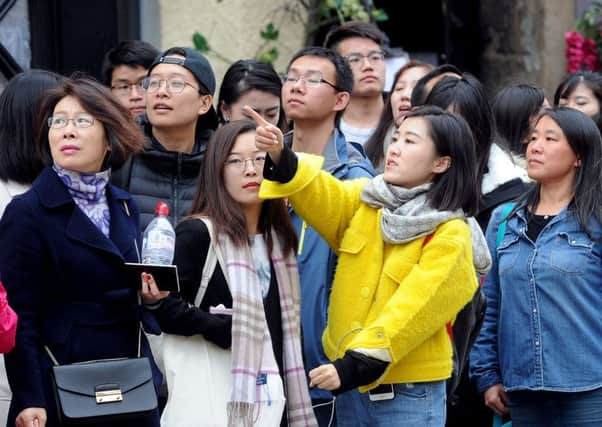Arts behind street cleaning in tourist tax priorities – Brian Ferguson


The prospects of Edinburgh pressing ahead with the UK’s first tourist tax after the Scottish Government lifted its long-time opposition and the city’s marketing body being wound up have sent relations plummeting between the local authority and some of the city’s key sectors.
In fact, I’d have to go all the way back to the campaigns against Edinburgh’s congestion charging plans to recall such widespread despair against key policies. Back then, in the spring of 2005, the prospect of road tolls being enforced across the city was skewered by a referendum. But now public opinion seems to have swayed decision-makers in the other direction. Although the fate of Marketing Edinburgh and its annual £890,000 subsidy has still to be decided by councillors, it does feel like an easy target.
Advertisement
Hide AdAdvertisement
Hide AdThe proposal has been put forward by the same politicians who have faced almost blanket industry opposition to their efforts to pursue a tourist tax, the plans for which have been developed in response to a perceived lack of interest from the industry in ploughing any resources generated by the industry back into the council’s coffers.
But the cut has also been suggested in the wake of sustained online discontent in recent years about the impact of growing numbers of tourists, events and festivals on the city centre.
Marketing Edinburgh’s chief executive, John Donnelly, has embarked on an impressive rearguard action, although the irony will not be lost on him about doing this months after the body was asked to run surveys to help build support for the tourist tax plans.
Strangely, the one thing people were not asked about was whether any money raised from the tourist tax should be ringfenced for bodies like Marketing Edinburgh or other promotional initiatives or campaigns. But they were when the council staged its own consultation in the autumn, which found marketing and promotion at the bottom of a list of priorities – below street cleaning, transport, parks and green spaces, and community policing – supported by just two per cent of those surveyed.
Yet a few months ago Mr Donnelly was talking up the prospect of approval for a tourist tax in Edinburgh providing “sustainable investment to maintain our position as one of the world’s best destinations”. He was also cautioninng against a complacent attitude that “Edinburgh sells itself” while warning “major international cities, and plenty of smaller ones too, are prioritising their promotion”. His lobbying may yet win a stay of execution for Marketing Edinburgh, despite the lack of public enthusiasm for its international efforts, but the prospect of securing a piece of the tourist tax pie look remote to say the least.
The same applies to festivals and events, despite the city’s former culture leader, Richard Lewis, arguing that tourist tax revenue should be ringfenced for the arts. Surely he was aware that this idea was supported by just four per cent of people in the council’s own consultation? Of course, the one real uncertainty about Edinburgh’s tourist tax plans is where the council thinks the money raised should go. But it doesn’t feel too far fetched to suggest the industry is about to get a whole lot of pain for no discernible gain.
